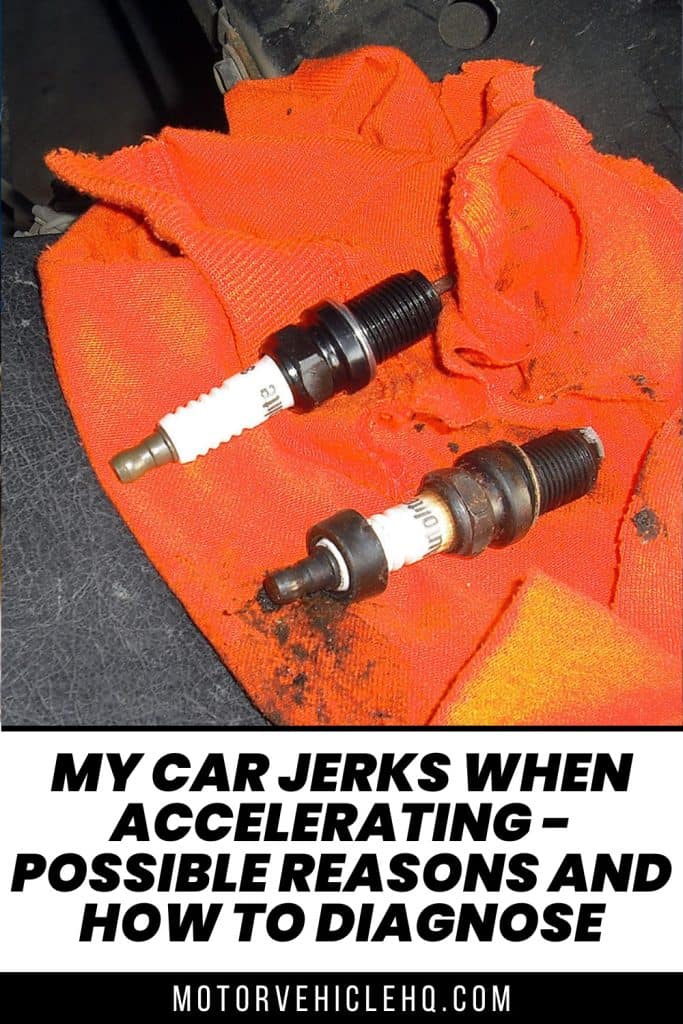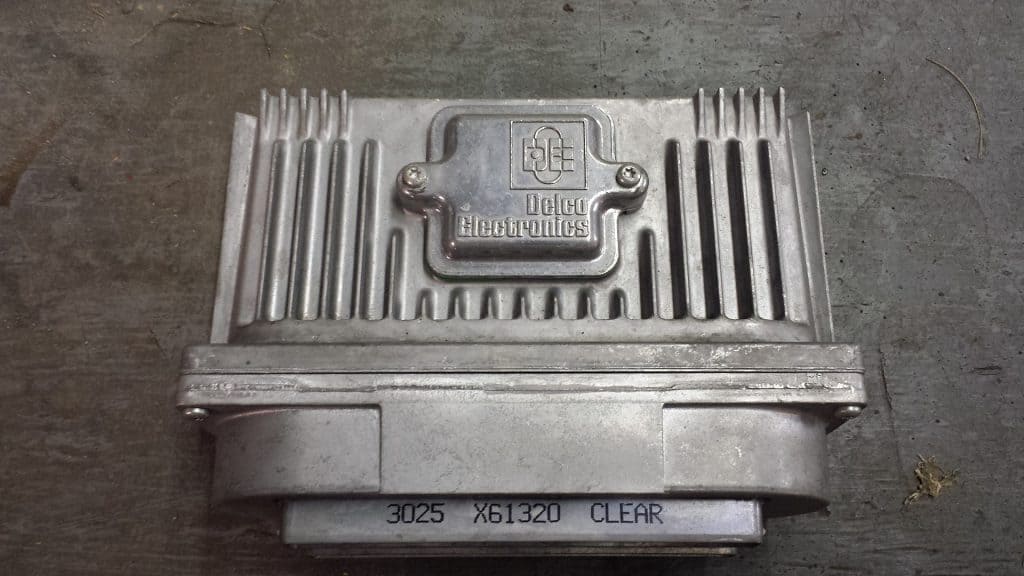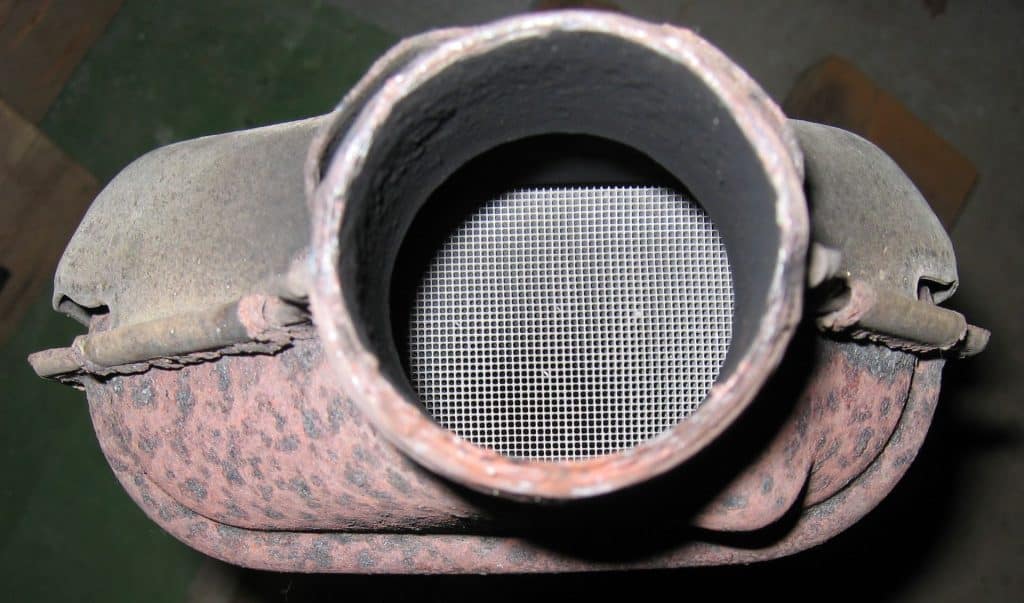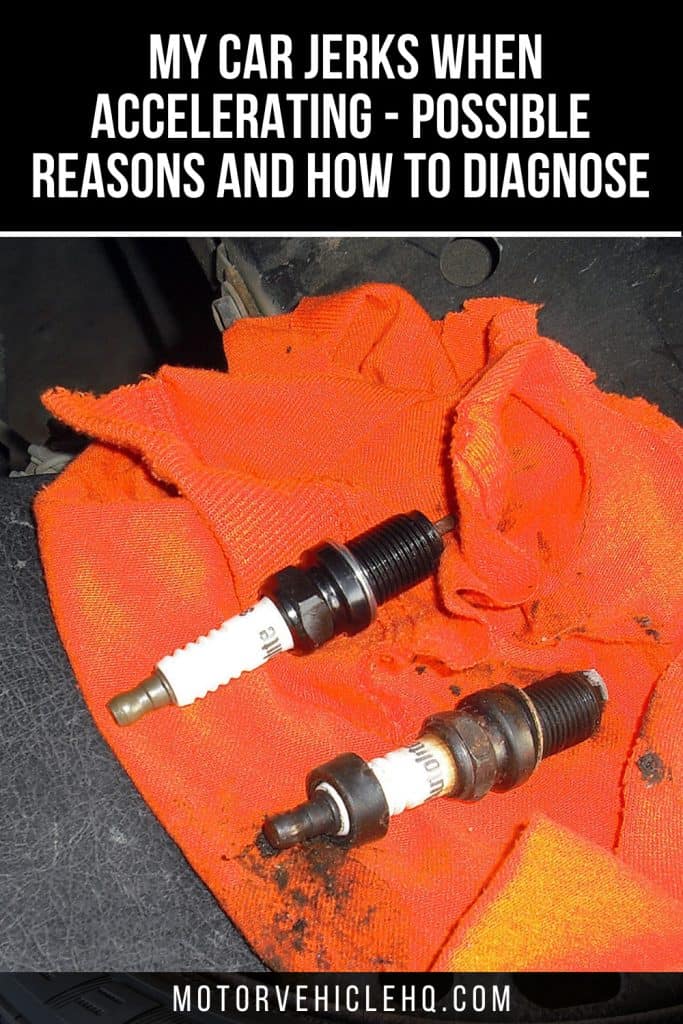The last thing you anticipate happening while driving down the road and attempting to reach where you’re going is for your car to start shaking.
Being in the driver’s seat and encountering a car jerks when accelerating. Sometimes, that alone might make a motorist temporarily lose control of their vehicle and put them in danger.
When your car accelerates jerkily, it might give you a queasy sensation and make you question whether there’s something wrong with the vehicle. cars are built to function efficiently for a very long time and in practically any situation.
A malfunctioning spark plug or a gearbox issue might be to blame for a car that jerks or hesitates when accelerating. We’ll go into the sensation of a jerking car in more detail, as well as probable reasons, expenses, and solutions.
Do not disregard the issue if your car shakes when accelerating. It can indicate that you have problems with anything from your catalytic converter to your spark plugs.
In rare circumstances, it can even be a sign that your car’s transmission needs to be fixed. To discover more about what to do with a car that jerks when accelerating in various circumstances, keep reading.
Car Jerks When Accelerating: What Does This Mean?
It’s okay if you’re unsure of what a car jerking during acceleration feels like because the majority of cars will operate smoothly and without issues for the duration of their existence. We’re here to explain how it feels when this issue arises if you’re still unclear about what’s happening in your car.

When a car jerks, it often appears as though it is pausing when accelerating, even at full power. Consider stepping on the gas and then paying attention to the rev counter. A healthy car should have a smooth, trouble-free RPM ascent up the rev counter.
The rpm counter frequently briefly stops increasing while your car is shaking before starting to increase again. Depending on the cause, your car might backfire, in which case, your engine would start to burn. Frequently, it will accelerate many times while repeating this procedure.
Driving can be dangerous if your car shakes when accelerating, as is evident. It may be challenging for you to obtain any speed if you’re accelerating from a complete stop. Maintaining speed might be questioning if your car is already going and you are experiencing this issue.
When a car has this issue, the engine or drivetrain is frequently involved, thus your check engine light can also illuminate. It’s best to have the issue fixed by taking your car to repair as soon as you can. Driving while having this issue might be risky because you won’t be able to manage your car’s speed.
What Causes My Car to Jerk When Accelerating?
We’d like to point out that you could be the issue before we discuss the potential reasons for this issue. You, indeed. Okay, so what we’re trying to say is that if this is your first time operating a stick shift or if it’s been a while, your gear change may be the problem in this situation.
If you don’t shift gears smoothly enough for the car, the vehicle may jolt as you move through the ratios. If you believe your driving may be the problem, you should learn more about how to operate a stick-shift properly.
There are various typical causes of car jerking, even whether you’re confident in your driving abilities or your vehicle is automated. Remember that these are but a handful and that your car’s issue may not be on the list:
1. Unclean Fuel Injectors
One of the most frequent reasons why a car jerks when accelerating. Your cylinders are expected to get a constant stream of gasoline from your fuel injectors.
This would not be possible with a clogged fuel injector, and your engine would not receive enough gasoline to burn. Your engine won’t function correctly as a result, and your car may jerk when accelerating. As you try to accelerate, it might frequently misfire as well.
You may easily clean them instead of replacing a dirty fuel injector. The majority of repair companies will charge you $50 to $100 to clean it, and the process shouldn’t take more than a few hours.
To save money, you may also clean your gasoline injectors; the simplest cleaning procedure only calls for adding a cleaning solvent to a virtually empty fuel tank. Other approaches will need tools and a rudimentary understanding of mechanics to complete.
2. Bad Fuel Filter or Fuel Pump
A car jerking when accelerating is frequently caused by problems with the fuel supply. Your car may have a defective fuel pump or fuel filter in addition to filthy fuel injectors.
The proper amount of gasoline cannot be pumped into the engine by a malfunctioning fuel pump. The system will become clogged by a filthy fuel filter, once more feeding your engine with the improper amount of gasoline.
A car engine by Tennen-Gas / CC BY-SA 3.0. A broken fuel pump prevents the engine from receiving the correct quantity of fuel. A dirty fuel filter may block the system, providing your engine with the incorrect quantity of gas once more.
Fuel pumps differ from one car to the next, and replacement costs will differ based on the make and model of your vehicle. The price to replace a gasoline pump ranges from $250 to $1000, with an average cost of roughly $450.
For a more precise estimate, you must go to a repair shop. The average cost to replace a gasoline filter, including labor, is around $165.
3. Defective Fuel Lines
The gasoline tank and engine are often connected via a metal line that goes below the vehicle. It may lose pressure if you have a damaged gasoline line. As a result, the fuel line’s pressure drops, allowing your car to provide the right quantity of fuel to your engine.
You must replace your gasoline line if it has been damaged or has a leak. A straightforward replacement project shouldn’t cost more than $120.
To repair the gasoline line, however, your car may need to have its fuel tank dropped, which may cost you up to $500. This is because replacing the fuel line involves additional work. When parking your car, keep an eye out for a pool of fluid to check for gasoline leaks.
4. Damaged Spark Plugs
The gasoline and air combination inside your engine’s cylinders is ignited by the spark plugs in your vehicle. This initiates combustion, which runs your car. When a spark plug malfunctions, the engine won’t be able to start correctly because the spark will be too weak or it may not even spark.
Your engine won’t operate smoothly as a consequence, leading to engine misfires. Most spark plugs require replacement every 20,000 to 30,000 miles. They are often replaced by your mechanic as part of standard maintenance. Therefore, it shouldn’t be an issue if you maintain your car correctly.
Give your engine a thorough inspection if your spark plugs fail early since there may be another issue at play. Anyhow, damaged spark plugs must be changed.
The entire cost is often between $20 to $150, but you can do it yourself because they are quite simple and there are many internet video instructions. The price of the spark plugs itself is often under $20. By doing it yourself, you can save some money.
5. Wetness In the Distributor Cap
The distributor, like the spark plug, is a crucial component of your car’s ignition system. Moisture can collect within the cap of a distributor-type ignition coil in your car, making it unable to properly transmit high voltage power to your spark plugs.
This frequently occurs if you live in a snowy location or during the winter and you leave your car outside for an extended period, allowing moisture to accumulate.
The ignition coil is located directly on top of the spark plugs in the majority of contemporary vehicles, known as a coil-on-plug arrangement. Given that the coil-on-plug method is without a distributor cap in this instance, you can rule out the option. There is no need to replace a distributor-type if you already have one.
Once the moisture is gone, the issue will go. Simply putting your car in an indoor garage will completely solve this issue. A thermal cover can also aid in preventing moisture accumulation.
The car transmission by Leoiii6382 / CC BY 4.0. If a car shakes when accelerating, there may be a problem with the gearbox. The solenoid sometimes referred to as the transmission control module is frequently to blame.
6. Air Intake Blockage or a Bad Mass Airflow Sensor
Your car utilizes an air intake to take in outside air, which it then mixes with gasoline and ignites via spark plugs. The car won’t be able to take in the necessary air if the air intake is obstructed or the air sensor is malfunctioning. As a result, when you try to speed your car, it will jerk since the combustion process won’t go as smoothly.
Depending on how serious the issue is, a clogged air intake will cost different amounts to fix. For instance, replacing an air filter that is simply unclean will cost between $80 and $150.
On the other hand, a complete replacement of the intake system would typically cost $500. Remember that this would depend on the brand and model of your car and that some vehicles might cost more than $1,000.
Meanwhile, replacing a damaged mass air flow sensor might run anywhere from $250 to $400. Your Engine Control Unit (ECU) balances the quantity of gasoline it feeds into the engine with the aid of the mass air flow sensor. Your engine will receive an improper quantity of fuel if your mass air flow sensor malfunctions.
7. Bad Accelerator Cable
Your car may have trouble accelerating if the accelerator cable is worn out. The throttle plate in your engine and this cable are connected via a cable. By opening the throttle plate and allowing more fuel to be put in, pressing the pedal will accelerate you.
The cable may eventually deteriorate and stop the process from escalating. It’s also conceivable that your accelerator wire has slack, which would make the throttle behave incorrectly.
Check the cable right away, and swap it out if required. If the cable snaps, your car will immediately stop functioning. The majority of accelerator cables won’t set you back more than $150 to replace, labor included. Remember that the cost might exceed $350 for some vehicles.
8. A Blockage on the Catalytic Converter
The catalytic converter, which is a component of the exhaust system, is in charge of lowering the emissions that your car emits. The average catalytic converter lasts ten years before needing to be changed. The mileage and engine tuning of your car, though, can have an impact.
Additionally, if your catalytic converter breaks too soon, it’s frequently due to a more significant problem with your car. A burst head gasket, defective fuel injectors, and an ignition coil are examples of potential reasons.
Watch out for colored smoke coming from your exhaust, since this is a sign of a significant problem with your vehicle and might harm your catalytic converter.
Your car will jerk when accelerating if the catalytic converter is blocked or broken, allowing exhaust gas to accumulate within. As you attempt to speed, your car can potentially stall. The price to replace a catalytic converter ranges from $900 to $2500 depending on the make and model of your car.
9. A Malfunctioning Transmission Control Module
An issue with the gearbox might also be the reason why a car shakes when accelerating. The transmission control module, often known as the solenoid, is a frequent culprit.
As you drive, this module controls your gearshifts. If your control module is malfunctioning, you’ll notice some latency while your car tries to shift into gear. When shifting gears, the car will occasionally jolt forcefully.
A car transmission control module by Mgiardina09 / CC BY-SA 3.0. The transmission control module manages gearshifts while you drive. You may experience some lag while your car tries to change into gear if your control module isn’t working properly. The car will periodically jerk violently when changing gear.
The price to replace a gearbox control module varies from car to car, as with other auto parts. When replacing the control module, budget between $500 and $900.
10. Error-Rigging Carburetors
Before being supplied into the engine, the amount of gasoline and air that are combined is managed by the carburetor. Because it won’t be able to accomplish this correctly if the carburetor is broken, your car may misfire and jerk when accelerating.
You may ignore this if your car was produced after 1995. Since the 1990s, when fuel injectors became significantly more dependable, the popularity of carburetors has decreased.
However, a faulty carburetor may be to blame if your vehicle is an older model with carburetors and jerks as you accelerate. Sometimes only quality service is required for your car, and this will usually cost you between $200 and $300.
However, if your carburetor has to be changed because it has malfunctioned, then you should be prepared to spend between $500 and $800.
The majority of the aforementioned problems will set off your check engine light. If it happens, we suggest that you take your car to a shop to get the issue fixed. You should immediately stop driving if your check engine light is flashing since it means that your car is experiencing a major problem.
Reasons Why Car Jerks When Accelerating At Different Speeds
Your car may jerk when accelerating for several reasons, as you can see from the list above. By observing the pace at which your car jerks, you can eliminate some of the potential reasons.
Your car may jerk in various ways and at various speeds. In other words, if your car jerks at low speeds, the issue that’s causing it could not be the same as if it jerks at high speeds.
Why Car Jerks When Accelerating At Low Speeds
Several issues might be the cause of a car jerking at moderate speeds. However, it’s frequently blamed on malfunctioning spark plugs, which are easy to fix.
The problem should be readily resolved with a replacement or a short tune-up, and they don’t cost much to complete.
Remember that if you have an older vehicle, it might also be brought on by issues with the air intake, catalytic converter, fuel injectors, or carburetor. If adjusting or replacing the spark plugs doesn’t solve the problem, you should inspect the other components.
Why Car Jerks When Accelerating At High Speeds
Airflow problems are frequently brought on by a car’s jerky acceleration at high speeds. At high speeds, your car requires more air to be injected into the engine. Your car will have trouble providing the right quantity of air to the engine if there is a problem with the intake system.
Your engine won’t function correctly since the combustion process will be hampered. It results in misfires and jerks when your car tries to accelerate.
If you encounter this, you should examine your air intake system and mass air flow sensor, and if required, get it replaced. However, this might also be caused by other issues.
The car catalytic converter by The RedBurn / CC BY-SA 3.0. When you accelerate, your car will jerk if your catalytic converter is clogged or damaged, enabling exhaust gas to build up within.
In any event, if you’re experiencing this, it would be smart to examine your car right away. Driving a car that jerks when accelerating at high speeds can be risky since you risk losing control of the speed of your vehicle.
If the cars behind you are unaware, your car may lose speed quickly and you may be rear-ended.
Why Car Jerks When Driven At Constant Speed
Your car will jerk if you try to accelerate from a complete stop or while maintaining a steady speed because it is not obtaining enough gasoline to do so smoothly.
When your fuel system is unable to supply a constant stream of gasoline to your engine, it is frequently the result of dirty fuel injectors or fuel pump problems. This can be distressing since it means that even in normal driving situations, like backing out of a parking place, your car will find it difficult to move.
Reasons Why the Automatic Transmission Car Jerks When Accelerating
As we previously stated, if you drive a manual, an erroneous gear change may be to blame for the acceleration jerks. If you drive an automatic, gearbox issues might cause your car to jerk, although this is less often. The most frequent reasons for a car to jerk when accelerating are problems with the fuel and air supplies.
The next frequent problem is with the ignition system, which results in your engine failing to properly ignite the gasoline and air combination. Both issues have an impact on the combustion process and frequently lead to misfires that cause the car to jerk when it accelerates.
A gearbox jerk is frequently more noticeable than engine issues. Your car often jerks while attempting to shift into a different gear, or it may delay or take longer to do so. If you encounter this, the solenoid is likely to be the source of the issue.
It would be advisable to go to a repair shop and have the issue diagnosed if you think you are having transmission problems. Driving with a poor gearbox is extremely risky since it might break down at any time.
Depending on the car, a gearbox repair job may cost differently. However, repairing a severely damaged transmission can be very expensive. The average cost to rebuild or replace a transmission is around $4,500.
Reasons Why Car Jerks When Accelerating Without a Check Engine Light
You could believe that everything is OK if your car jerks when accelerating but your check engine light hasn’t turned on. If the issue was so serious, the check engine light would undoubtedly come on to alert you, wouldn’t it?
Yes, there are instances where the reason why your car jerks will cause your check engine light to come on. For instance, a malfunctioning mass airflow sensor may turn on your check engine light. Consequently, the catalytic converter in your car will have a problem.
However, just because there isn’t a check engine light on doesn’t imply there isn’t a problem with your car jerks when accelerating. For example, your check engine light won’t always come on as a result of worn-out spark plugs.
The car ”Check Engine Light” by Wikiuser100000 / CC BY-SA 3.0. Your automobile may jerk when accelerating due to a defective mass airflow sensor and catalytic converter, which may illuminate your check engine light.
To prevent your car from jerking as you accelerate, you should still go out and replace your spark plugs right away. When a car shakes when accelerating and the check engine light is on, you need to take it to a repair right away.
However, the same thing is true when a car accelerates erratically but has no check engine light on. They both raise serious concerns.
Is It Safe to Drive a Car That Jerks When Accelerating?
You can, but we don’t recommend it. Depending on how severe the problem is, you might still be able to operate the vehicle with a few hiccups. It would be prudent to identify the issue and resolve it quickly, though.
As previously said, the issue could impair your driving judgment and put you in danger. You should truly fix your car because the majority of the problems that result in this will activate the check engine light nonetheless.
How Does It Feel While a Car Jerks When Accelerating?
You must understand how it feels when your car jerks before we go too far into understanding why a car jerks when accelerating. If your car has never jerked on you before, it might take you by surprise and leave you wondering what the heck just happened.
To ensure that you have a solid knowledge of how it feels when a car jerks when accelerating at both low and high speeds, let’s start there.
Your car may frequently seem as though it isn’t getting the power it needs to continue forward when it jerks. Your car will halt, and pause briefly before lunging ahead even if you have your foot firmly on the pedal, and it will frequently repeat this procedure many times depending on what is causing your car to jerk.
The jerking will prevent you from building up any speed if you’re trying to accelerate your car from a standstill. Additionally, even if your car is already speeding, the jerking will make it difficult for you to maintain your pace.
As you can expect, driving a car that jerks when accelerating might be risky since it will be difficult for you to maintain control of it.
If you abruptly slow down from the speed you were traveling at before, someone who is following you may very probably collide with the rear of you. If your car jerks on you while you’re driving, it’s important to have it checked out by a professional.
What Do You Look Out for If a Car Jerks When Accelerating?
Make sure that the fuel and air supply systems are functioning correctly in addition to testing the ignition system. It is frequently discovered that injector nozzles are broken or dirty. Checking for leaks in the fuel lines and gasoline filters is also a good idea.
The internal combustion engine’s performance jerks and dips under stress because of the fuel system, but even while the engine is accelerating, the fuel supply may be inadequate or inconsistent. One by one, the injector and other system parts like the fuel pump must be examined.
The carburetor controls how much fuel and air are mixed before being injected into the engine. Your car may misfire and jerk when accelerating if the carburetor is faulty since it won’t be able to do this properly.
Useful Advice
The engine’s twitching during acceleration is frequently more obvious when it’s cold. In this case, temperature sensors are essential, so pay attention to them.
The ECU frequently receives an early warning that the motor is warming up when it fails or malfunctions, even if it is still cold.
The ECU automatically decreases the fuel given to the engine to exit the so-called greater warm-up revolutions mode. However, this results in the cold engine running unevenly, which increases jerks and vibrations.
This might be a comparable circumstance to air leaks or issues with the mass airflow sensor (MAF). The control unit will wrongly predict how much air will reach the combustion chambers, resulting in an inappropriate fuel-to-air ratio.
If the diesel engine jerks when accelerating, the high-pressure pump is broken. The pump has several moving elements that, if they are broken or blocked, might produce jerking.
The Conclusion
It might be disconcerting to feel your car lurch as you accelerate. The good news is that you may simply avoid this by keeping your car correctly and doing the necessary maintenance.
During maintenance, the majority of the elements that lead to misfires are often repaired or replaced. Therefore, maintaining your vehicle properly might help you prevent acceleration jerking issues.
However, more significant problems like gearbox and catalytic converter troubles might also be to blame for jerking when accelerating.
We strongly suggest you solve these problems since they are quite significant, whether it’s because the parts are getting close to their life or something else is causing early harm.
Selling or scrapping your car is another alternative if the cost of repairs is too high. Find out whether any other issues contributed to the components’ early failure if you decide to move forward with the repairs. Other parts of your car will continue to suffer harm if you don’t have them fixed.
Whatever the source, make sure to adhere to your car’s maintenance plan and fix the issues as required. A smooth-running vehicle is safer as well as more comfortable to drive.

An old spark plug was removed from a car by Myke2020

Jill Miller is the founder of Your RV Lifestyle. Trading corporate America for the open road, Jill, along with her partner Jose, began their RV journey, making an unconventional start by wintering in New Jersey. A natural adventurer, she was motivated by a desire to explore the USA and beyond, embracing the varied landscapes, communities, and cultures across the country.
For Jill, the allure of RV living was not about material accumulation, but rather the pursuit of an adventurous, fulfilling lifestyle. A lover of golf, bicycling, hiking, and line dancing, she has carried her passions across the country, engaging with them in diverse settings. Jill’s commitment to the RV lifestyle came after years of careful research, numerous consultations with RV owners, and personal trials, including living in a rental RV.






